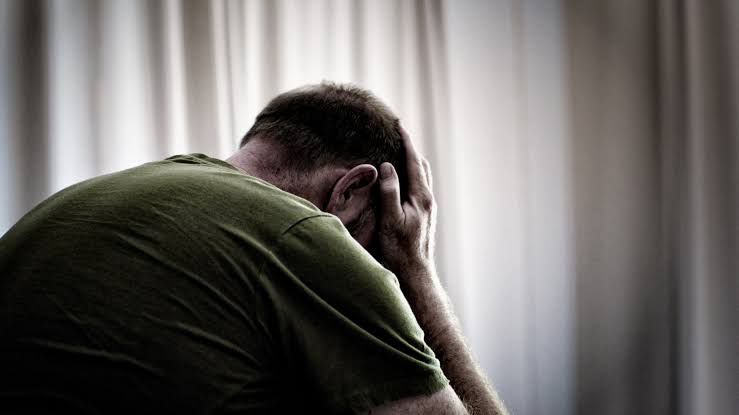False rape accusations and the quest for justice in Nigeria

Image illustrating a victim of false rape accusations. Photo Credit- The Centre for Male Psychology
Should a woman go to jail for false rape accusations? Has sent shockwaves throughout social media. The question, raw and provocative has drawn a line in Nigeria where discussions about sexual violence, gender roles, and justice are often based on cultural complexity and systemic failures. Every day, the question sparks a heated debate, amassing thousands of engagements and exposing the deep fault lines in Nigerian society over how to handle false rape allegations.
In Nigeria, a nation of over 200 million people, the issue of rape is a crisis of staggering proportions. A 2024 Amnesty International report revealed that 11,200 rape cases were reported in the previous year alone, with many more going unreported due to stigma, corruption, and victim-blaming. However, this question flipped the narrative, shining a spotlight on the other side of the coin: the devastating impact of false rape accusations on men and the broader societal implications in a country where true justice is often a fairytale.
A holistic view on false rape accusations
On the other side of the debate are women’s rights advocates who fear that punishing false accusers could exacerbate an already delicate situation for rape survivors. In Nigeria, rape persists at crisis levels, with most survivors denied justice due to systemic failures. The Amnesty International report noted that pervasive corruption, stigma, and victim-blaming prevent survivors from reporting, and even when they do, rapists often avoid prosecution. In 2024 alone, hundreds of cases went unreported, and many reported cases were mishandled by police, according to the report.
Activist have argued that reporting a sexual assault by a family friend usually faced skepticism from the police and local community. The question “what was she wearing, why was she alone with him?” only shows blame and makes them afraid of reporting sexual violence. Activists have also expressed worries that jailing women for false accusations could prevent genuine victims from coming forward. If a woman’s case is dismissed because the police didn’t investigate properly, will she be labeled a liar and sent to jail.
Cultural beliefs is a factor that promotes these challenges. A study in the European Journal of Psychology Applied to Legal Context, notes that false rape allegations often mirror media portrayals of rape, which differ from most real incidents. In Nigeria, rape myths such as the belief that women “invite” rape by their clothing or behavior are deeply entrenched, as highlighted by researchers on Nigerian women’s experiences of sexual violence. These myths, rooted in patriarchal norms, influence societal responses to rape and discourage disclosure.
RELATED STORIES
The backlash against Enioluwa’s tears shows why Nigerian men are dying in silence – Halima Layeni
International Women’s Day: Nigerian Women course for greater inclusivity in Sports
From H*e to Holy: The “fake change” narrative of modern women
The legal and systemic challenges
Under Nigerian law, filing a false police report is a punishable offense, but prosecutions in the context of rape allegations are rare. Legal experts, explain that the lack of a distinct classification for false rape accusations creates ambiguity. Many cases are labeled ‘unfounded’ because of insufficient evidence, not because they are proven false. In a system where police investigations are often fabricated, how do you determine what’s truly false?
The Nigerian justice system’s broader failures compound the problem of false rape accusations. Corruption is a pervasive issue: Transparency International’s 2023 Corruption Perceptions Index ranked Nigeria 145 out of 180 countries. The Wikipedia entry on corruption in Nigeria details how officials have historically manipulated systems for personal gain. This culture of impunity extends to the handling of sexual violence cases, where police often fail to investigate thoroughly, and courts struggle to deliver timely justice.
Final take
As Nigeria grapples with the issue of false rape accusations, experts and activists call for a balanced approach. Suggestions that the government should prioritize police reform, ensuring thorough and impartial investigations into all rape allegations. Additionally, he advocates for public education campaigns to challenge rape myths and shift cultural attitudes around gender and consent.
Survivors, agree on the need for accountability but emphasize protecting genuine victims. Punish those who lie, but don’t make it harder for women to speak out. Others, simply want fairness: if they had to face the law when they thought they were guilty, then someone who lies should face it too.
The debate reveals a broader truth: in Nigeria, the pursuit of justice, whether for survivors of rape or victims of false accusations remains filled with challenges. As the nation moves forward, it must confront not only the legal and systemic barriers but also the cultural norms that perpetuate injustice. Only then can Nigeria hope to create a system where truth prevails, and all voices are heard.

